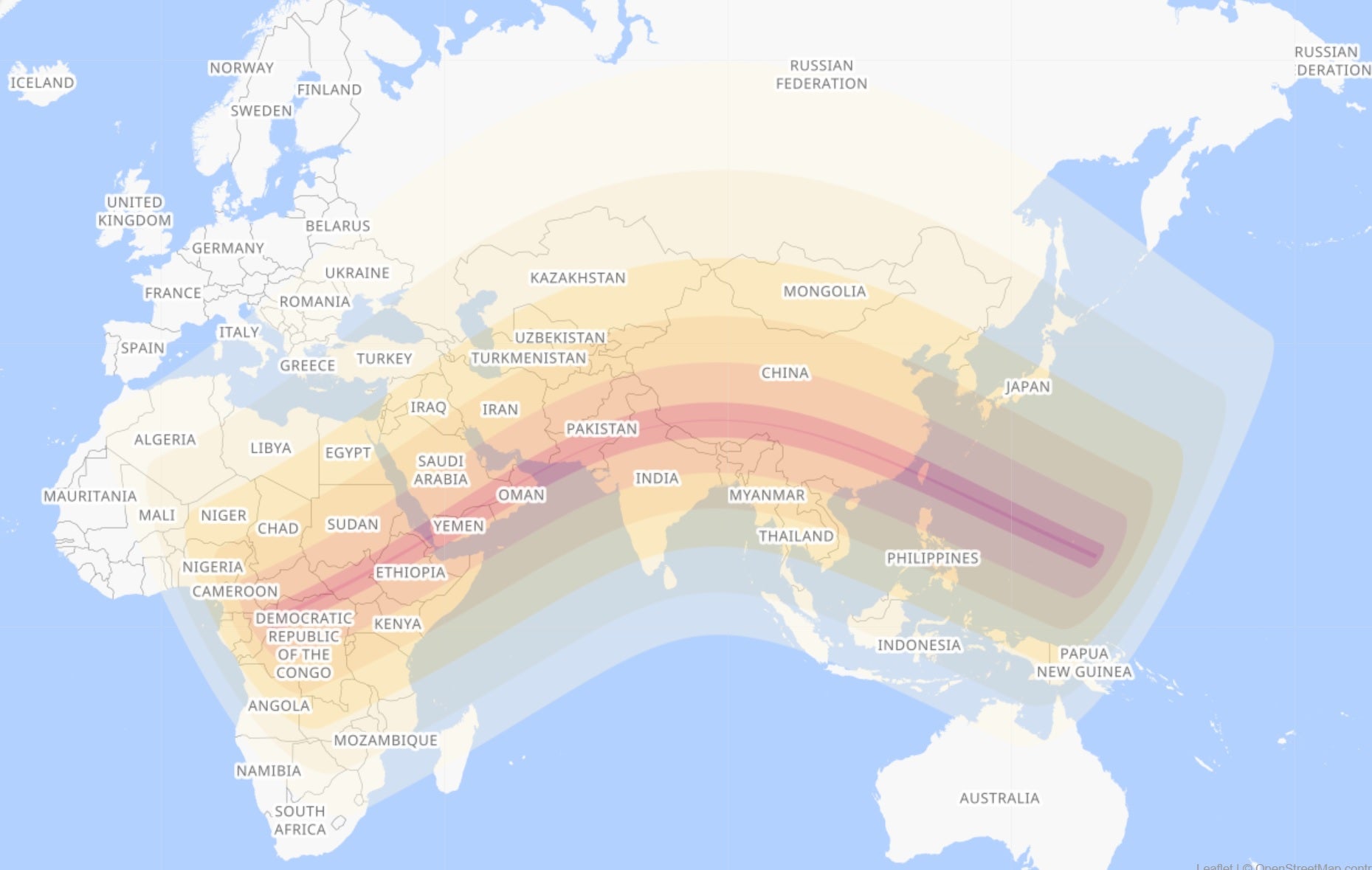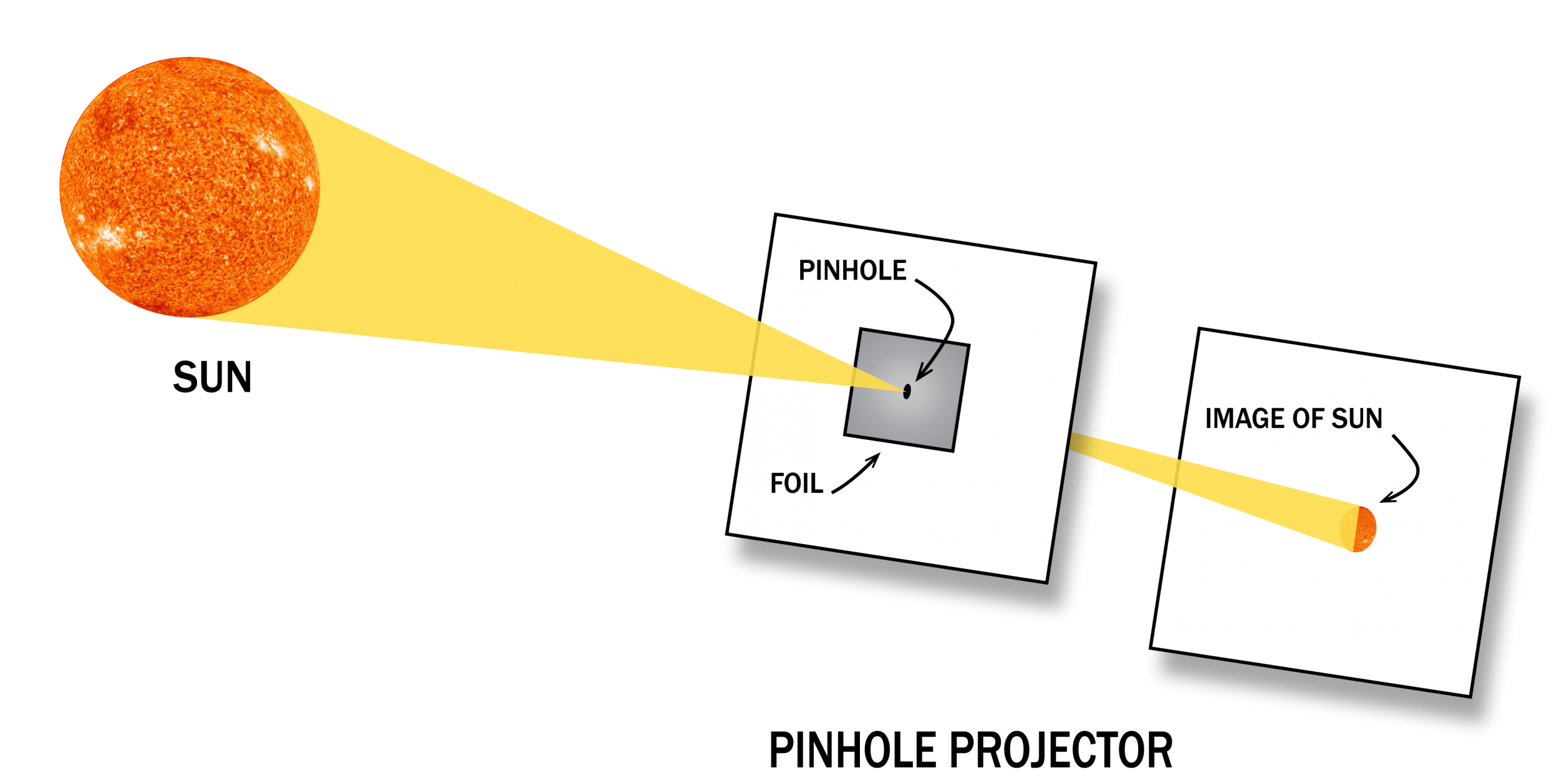Solar eclipse 2020: Where to see and how to photograph it this weekend
The rare astronomical event will pass directly over 12 countries, creating a 'ring of fire'
A rare type of solar eclipse that creates a “ring of fire” around the moon is set to take place this weekend, passing over large parts of the Earth.
The spectacular effect of the so-called annular eclipse is created when the Moon is further away than usual from the Earth, meaning it is unable to completely block out the Sun.
At the point of totality – when the Earth, Moon and Sun are aligned – 0.6 per cent of the Sun will remain visible on the periphery of the Moon's edges.
The path of the total eclipse on 21 June will pass directly over 12 countries and territories: Democratic Republic of Congo, South Sudan, Ethiopia, Eritrea, Yemen, Oman, Pakistan, India, Nepal, China, Taiwan and Guam.
It will also be partially visible as far north as Europe and Siberia, and as far south as Australia – but only just.
Those unable to witness the event in person will be able to watch a free live stream broadcast by Timeanddate.com.
The website has also created a map showing exactly where there total eclipse and partial eclipse will be visible.

Anyone viewing the eclipse from the ground is advised to use eye protection to avoid causing serious damage to their eyes.
Wearing specialised eclipse viewing glasses make it possible to look directly at the sun, while equipment like pinhole projectors allow people to see a projection of the sun.
These can be made using a couple of pieces of card or paper, using one to project the image of the sun through a pin-sized hole, and the other to project the image onto.

It is also possible to view the eclipse using a camera with the correct settings. To take a photo, the camera needs to a small aperture and an extremely short shutter speed.
Digital camera maker Nikon recommends using an aperture of between f/8 and f/16, and a shutter speed from 1/4000 second to 1/30 second.
The totality phase of the eclipse will only be visible for a fraction of a second, however the full process of the Moon passing in front of the Sun will take several minutes.
In certain areas of Africa, US-based organisation Astronomers Without Borders has been handing out recycled eclipse viewing glasses to people for free.
“Living in such uncertain times, we hope that by sharing across space and time the experience of witnessing the natural beauty of a solar eclipse we can help transcend borders, and bring a sense of peace and togetherness, which is so needed these days,” said Zoe Chee, interim executive director of Astronomers Without Borders.
“Thanks to the generosity of so many across the United States, we are excited to be able to offer access to this amazing celestial phenomenon to those who otherwise would have missed out.”
Join our commenting forum
Join thought-provoking conversations, follow other Independent readers and see their replies
Comments
Bookmark popover
Removed from bookmarks